#hemp nutritional values
Explore tagged Tumblr posts
Text
Since I'm vegan, incorporating elements of a canine ancestral diet into my lifestyle will be more about emulating the nutritional balance rather than the exact foods wolves consume. Wolves eat a mix of proteins, fats, and plant matter, with an emphasis on whole, nutrient-dense sources. Their diet is built for survival, strength, and endurance—qualities I can mirror through plant-based foods while maintaining my values.
### **Key Elements of a Wolf's Diet & Vegan Alternatives**
#### **1. High-Protein Intake**
Wolves thrive on a protein-rich diet, which fuels their muscles and sustains their energy for long periods. You can incorporate:
- **Legumes & Pulses** – Lentils, chickpeas, black beans, and split peas
- **Soy-based Proteins** – Tofu, tempeh, and edamame
- **Seitan (Vital Wheat Gluten)** – A high-protein, meat-like option
- **Hemp & Chia Seeds** – Packed with complete proteins
- **Nutritional Yeast** – Adds protein and a cheesy flavor to dishes
#### **2. Balanced Fats for Energy & Brain Function**
Wolves get essential fatty acids from prey, but you can substitute with plant-based sources:
- **Omega-3s** – Flaxseeds, walnuts, algae-based supplements, hemp seeds
- **Healthy Fats** – Avocados, olives, coconut, and nuts
- **Medium-Chain Triglycerides (MCTs)** – Found in coconut oil, which can boost energy like animal fats do for wolves
#### **3. Micronutrients & Minerals from Wild Plants**
Wolves eat berries, grasses, and herbs instinctively to maintain their health. You can add these:
- **Berries** – Blueberries, blackberries, and raspberries for antioxidants
- **Leafy Greens** – Kale, spinach, dandelion greens (high in calcium and iron)
- **Herbs & Wild Edibles** – Nettles, burdock root, and spirulina for detoxifying and nutrient density
#### **4. Gut Health & Digestion**
Wolves consume organ meats and bones for vitamins and minerals. A vegan version includes:
- **Fermented Foods** – Sauerkraut, kimchi, miso, and kombucha for gut health
- **Seaweed** – Rich in iodine and minerals, similar to nutrients found in animal organs
- **Mushrooms** – Reishi, lion’s mane, and chaga mimic the adaptogenic benefits of organ meats
#### **5. Cyclical Eating & Fasting**
Wolves don’t eat constantly; they gorge, fast, and graze on small plant foods. You might try:
- **Intermittent Fasting** – Eating within a set window (e.g., 8-hour feeding period)
- **Feast & Fast Cycle** – Some days with high intake, some days lighter with just fruits and greens
- **Instinctual Eating** – Listening to your body’s needs rather than forcing strict meal times
#### **6. Hydration & Natural Electrolytes**
Wolves get hydration from prey and fresh water sources. For you:
- **Coconut Water** – A natural electrolyte boost
- **Herbal Teas** – Dandelion, mint, and chamomile for hydration and benefits
- **Infused Waters** – Lemon, cucumber, or berries to mimic mineral-rich natural waters
### **Meal Ideas Inspired by a Canine Ancestral Diet**
- **"Hunt & Gather" Bowl** – Lentils, roasted mushrooms, wild rice, dandelion greens, and tahini
- **High-Protein Wild Plate** – Grilled tempeh, hemp seed pesto, roasted root veggies
- **Feral Smoothie** – Blueberries, coconut milk, hemp protein, chia, and spirulina
- **Forager’s Broth** – Miso soup with seaweed, tofu, and mushrooms
- **Raw Energy Bites** – Dates, walnuts, cacao, flax, and a touch of sea salt
I'm a nerd and a vegan wolf so have my collected information and brainstorming
#therian#therianthropy#therian things#wolf therian#wolfkin#canine therian#caninekin#canine theriotype#dogkin#alaskan black wolf#diet#canine eats
52 notes
·
View notes
Text
Its high nutritional value is comparable to soy. Moreover, almost the whole body of the hemp plant has a wide array of utility: industrial production of food, fiber, and construction materials. In view of environmental sustainability, hemp requires less pesticides or water in cultivation compared to cotton, a representative fiber plant. This short review investigates hemp’s sustainability as a plant as well as its utility value as a highly nutritional material in the food industry. Recent application research of hemp protein in food processing includes plant milk, emulsifiers, fortification of gluten-free bread, plant-based meat production, as well as membrane formation.
🌱🌱🌱🌱🌱🌱🌱🌱🌱🌱🌱🌱🌱🌱🌱🌱🌱🌱🌱🌱🌱🌱
Hempcrete is “carbon-negative” or “better-than-zero-carbon” because hemp plant absorbs more carbon from the air during growth than it yields during its production. Moreover, it continues to absorb carbon after being employed in construction, storing more carbon over the building’s lifetime than was emitted during construction
9 notes
·
View notes
Text
Cannabis: A Multifaceted Plant for a Multitude of Uses

Introduction
Cannabis, a plant that has been a part of human history for thousands of years, is experiencing a resurgence in popularity as its myriad of uses become increasingly recognised. From its strong fibres used in textiles and paper to its nutritional and medicinal properties, cannabis has proven itself to be a truly multipurpose plant. This article will delve into the various aspects of this versatile plant and explore how it has been utilised throughout history and across cultures.
The History of Hemp: A Material with Unmatched Strength
One of the most well-known uses of cannabis is in the production of hemp, a material derived from the plant's strong fibres. These fibres have been used for millennia to create durable cloth, rope, and paper. The Vikings, known for their seafaring prowess, utilised hemp to construct sails for their ships, enabling them to voyage from Scandinavia to Nova Scotia. In the United States, Betsy Ross sewed the first flag from hempen cloth, and the Declaration of Independence was written on hemp paper. Even the now obsolete German currency, Deutsche Mark, were once printed on hemp paper.
The use of hemp extended beyond these applications, as seen in the Netherlands, where windmills were built specifically to crush hemp stalks. This demonstrates the importance of hemp in various industries and highlights the plant's incredible versatility.

Cannabis as a Nutritional Powerhouse
While the strength of its fibres may have initially attracted humans to the cannabis plant, its potential as a food source likely played a significant role in its widespread cultivation. Cannabis seeds, or hempseeds, are packed with essential nutrients such as polyunsaturated fats, essential fatty acids, and proteins. These qualities qualify hempseed as a functional food, meaning it provides health benefits beyond basic nutrition.
For over three thousand years, Asian cultures have utilised hempseed as both a food and a medicine. Despite the prohibition of cannabis products in the United States, hempseed has been allowed for use in food over the last two decades. This highlights the recognition of its nutritional value and potential health benefits.
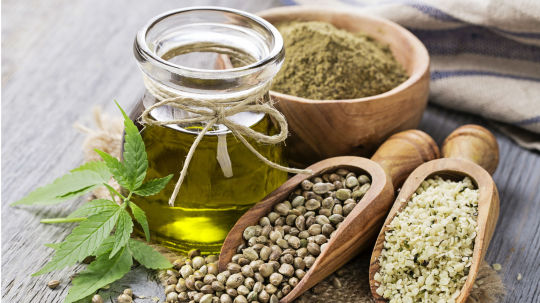
Cannabis Resin: A Source of Medicinal and Psychoactive Compounds
The resin produced by the cannabis plant is another aspect that has garnered significant attention due to its medicinal and psychoactive properties. The compounds found in cannabis resin, such as THC (tetrahydrocannabinol) and CBD (cannabidiol), have been the focus of breeding efforts to increase their production. These efforts have led to the development of various cannabis drug chemotypes around the world, with some cultivars producing only THC, others producing both THC and CBD, and a few expressing propyl THCV (tetrahydrocannabivarin) and/or CBDV (cannabidivarin).
The medicinal uses of cannabis resin have been widely researched, with evidence suggesting its effectiveness in treating conditions such as chronic pain, epilepsy, multiple sclerosis, and more. The psychoactive effects of THC have also led to the recreational use of cannabis, which has sparked debates surrounding its legalisation and regulation.

Environmental Benefits of Cannabis Cultivation
In addition to its myriad uses, cannabis cultivation offers several environmental benefits. Hemp plants are known to absorb large amounts of carbon dioxide, making them an effective tool in combating climate change. Furthermore, hemp requires fewer pesticides and herbicides than many other crops, reducing the environmental impact of agriculture.
Cannabis can also be used as a source of biofuel, offering a renewable and eco-friendly alternative to fossil fuels. Additionally, the fast growth rate and low water requirements of hemp make it a sustainable crop, capable of providing resources without causing significant strain on natural resources.
Conclusion
Cannabis is a truly remarkable plant, with applications ranging from textiles and paper to nutrition and medicine. As society continues to recognise its numerous benefits, it is likely that the cultivation and use of cannabis will only continue to grow. By embracing this versatile plant, we can harness its potential to improve our health, industries, and environment for generations to come.
#cannabis#cannabismedicine#cannabishistory#medical cannabis#cbd#feelgreatagain#cbdoil#budandtender#health#endocannabinoidsystem
101 notes
·
View notes
Text
The 11 Best Vegan Protein Powders, Tested and Reviewed
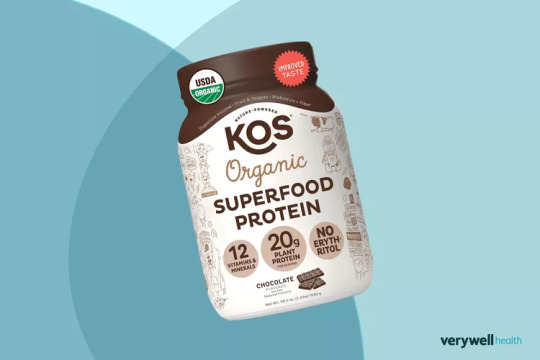
Choosing the right vegan protein powder can be a game-changer for your nutrition. Whether you're looking for a post-workout boost or a way to meet your daily protein needs, these plant-based options stand out for their quality, taste, and nutritional value. Here’s a breakdown of the top vegan protein powders, including their unique features.
1. KOS Organic Plant-Based Protein Powder
Key Features:
Blend of pea protein, flaxseed, quinoa, chia seeds, and pumpkin seeds.
Complete amino acid profile.
Available in chocolate and vanilla flavors.
Gluten-free, dairy-free, and soy-free.
Best For: Balanced nutrition with a delicious taste.
2. NOW Sports Nutrition Pea Protein
Key Features:
100% pea protein isolate.
Unsweetened and unflavored, perfect for mixing into recipes or smoothies.
Non-GMO, soy-free, and dairy-free.
Best For: Simple, no-frills protein supplementation.
3. Sprout Living Epic Protein Vanilla Lucuma
Key Features:
Protein from sunflower, pumpkin, sacha inchi, and cranberry.
Vanilla flavor enhanced with lucuma fruit.
Organic and free from artificial additives.
Best For: Organic and nutrient-dense protein.
4. Garden of Life Raw Organic Protein
Key Features:
Mix of 13 plant-based proteins, including pea, brown rice, and chickpeas.
Fortified with probiotics and digestive enzymes.
Gluten-free and dairy-free.
Best For: Protein and digestive support in one.
5. Orgain Organic Plant-Based Protein Powder
Key Features:
Blend of pea protein, brown rice, and chia seeds.
Chocolate and vanilla flavors.
Gluten-free, soy-free, and dairy-free.
Best For: Versatility and great taste.
6. Vega Sport Premium Protein
Key Features:
Protein from pea, alfalfa, pumpkin, and sunflower.
Contains BCAAs and glutamine for muscle recovery.
Chocolate and vanilla flavors.
Gluten-free and dairy-free.
Best For: Athletes and active lifestyles.
7. Sunwarrior Warrior Blend Organic
Key Features:
Blend of pea, hemp, and goji berry proteins.
Available in chocolate, vanilla, or natural flavors.
Gluten-free, soy-free, and dairy-free.
Best For: A unique mix of superfoods and protein.
8. Nuzest Clean Lean Protein
Key Features:
Pea protein isolate.
Chocolate, vanilla, or unflavored options.
Gluten-free, soy-free, and dairy-free.
Best For: Clean and simple protein.
9. Aloha Organic Plant-Based Protein Powder
Key Features:
Blend of pea, brown rice, pumpkin, and hemp proteins.
Organic, chocolate or vanilla flavors.
Gluten-free, soy-free, and dairy-free.
Best For: Organic plant-based nutrition.
10. Amazing Grass Protein Superfood
Key Features:
Protein from pea, hemp, chia, and quinoa.
Includes greens and fruit for added nutrients.
Chocolate or vanilla flavors.
USDA organic and gluten-free.
Best For: A protein and superfood blend.
11. PlantFusion Complete Plant-Based Protein Powder
Key Features:
Blend of pea, artichoke, quinoa, and amaranth proteins.
Chocolate, vanilla, or natural flavors.
Gluten-free, soy-free, and dairy-free.
Best For: High-quality protein with added nutrition.
Conclusion
These vegan protein powders cater to a variety of dietary needs and preferences, offering everything from simple protein sources to blends enriched with superfoods and probiotics. Whether you need extra recovery support, nutrient density, or just a clean protein boost, there's a product here for you.
2 notes
·
View notes
Text
New favorite hummus alert! It's honestly been a while since I've come across a hummus recipe that has truly wowed and surprised me, so I'm pretty grateful to past me for buying a big bag of hemp seeds, the leftovers of which prompted me to try this one out when I might otherwise never have gotten to it.
I made this in full and added maybe one tablespoon of water just to help everything blend. I am a big fan of thicker hummus, though, so didn't really feel the need to add much more than that.
Not too many more notes here otherwise! I am super keen to make this again soon, as it was shockingly delicious and a great way to pack some extra nutritional value into your everyday hummus.
2 notes
·
View notes
Text
How to Incorporate Hemp Seeds into Your Daily Diet !
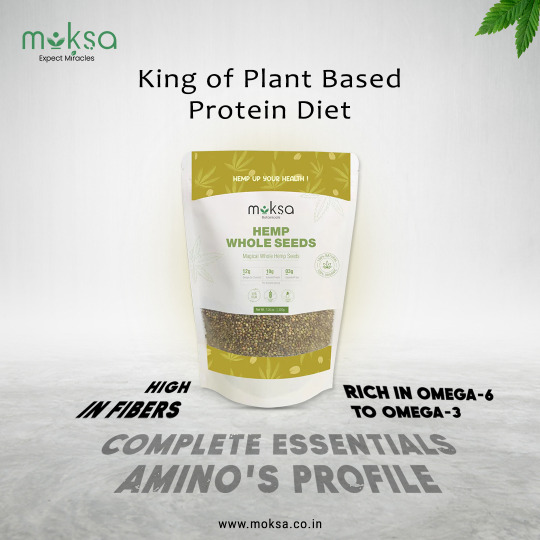
Regular hemp seeds into your everyday dietary regimen holds the potential to make a remarkable difference in improving your daily nutrition and magnifying your overall well-being. Hemp Seeds in India, known as “Bhaang Ke Beej”, are exploding with essential nutrients like protein, healthy fats, and minerawrals. This article aims to provide you with practical tips and creative ideas to incorporate hemp seeds into your daily meals and snacks.
Hemp seeds have gained immense recognition as a superfood because of their remarkable nutritional profile. While others consider it to be a drug, scientific studies prove that it is a natural, plant-based protein that contains all nine essential amino acids required by the human body. It contains cannabidiol (CBD), a non-psychoactive cannabidiol used to reduce anxiety, alleviate pain and help improve certain markers of heart health.
Hemp Seeds in Breakfast
Embark on your journey of including a healthy lifestyle by starting with a nutrient-packed breakfast made up from hemp seeds.
Sprinkle a generous handful of hemp seeds over a bowl of creamy flavoured yogurt and complement it with fresh vibrant fruits of your choice. It can also be infused with your favourite morning drink of choice because it seamlessly blends into the mix, providing an additional protein punch to kick-start your day with an insane amount of energy.
For a warm and comforting option, stir hemp seeds into a steaming bowl of oatmeal or prepare an overnight chia pudding with a great texture and flavour of hemp seeds. Their numerous benefits will not only improve your health but also provide you with a refined health.
Hemp Seeds in Salads/Soups
Salads and soups provide a gratifying canvas for the hemp seeds to be included in your day to day food.
Elevate the protein content and add a satisfying crunch to your green salads by putting a handful of hemp seeds in it.
Transform your roasted vegetable soups into a nutrition powerhouse by garnishing them with a sprinkle of hemp seeds, enhancing both their taste and nutritional value.
Hemp Seeds in Baked Goods
Unleash your creativity by seamlessly incorporating hemp seeds into your baked goods.
Replace a portion of conventional flour with finely ground hemp seeds to infuse your muffins or bread with an added protein boost and a nutty flavour to improve its nutritional value.
For an irresistible treat, generously sprinkle hemp seeds atop your favourite cookies or bars before you put them in the oven for a pleasing crunch assorted flavours.
Nutritional Hemp Seeds as a Snack
For a wholesome and convenient snack option, look no further than Hemp Seeds energy balls.
Blending together the delightful combination of dates, almond butter, cocoa powder, and hemp seeds until they turn into a mixture.
Gently mould them into small spheres and let them rest in your refrigerator for a minimum of one hour before indulging in their savoury delights.
These energy balls serve as a pick-me-up during your bustling day or as a replenishing post-workout snack, energising your body and satisfying your taste buds simultaneously.
Hemp Seeds in Smoothies
Quench your thirst and reactivate your senses with a refreshing hemp seed-infused smoothie.
Enhance your favourite fruit and vegetable smoothie with a tablespoon of hemp seeds, elevating its protein content to new heights.
For a healthy green smoothie, combine the goodness of hemp seeds with ripe bananas, spinach leaves, almond milk, and a hint of cinnamon, resulting in a nutritious delight that is both nourished and super healthy.
Hemp Seeds in Lunch/Dinner
Explore beyond the boundaries of side dishes and snacks, and unleash the potential of hemp seeds in your main courses. Add boldness to your roasted vegetables or grilled chicken with a sprinkle of hemp seeds, elevating their flavour profile and adding a satisfying crunch. Alternatively, utilise hemp seeds as a coating for fish or chicken, creating a healthy and nutritious crust that satisfies both the eyes and the taste buds.
Last but not least, ensure you always have a small container of hemp seeds at your disposal for moments of snacking delight. Hemp seeds serve as an exceptional standalone snack option, boasting portability, nutrition, and an unparalleled ease of enjoyment on the go.
Incorporating Raw Hemp Seeds into your daily diet paves the way for an exciting flavourful adventure, enhancing your meals with added nutrition and unparalleled taste. From breakfast to main courses, and even snacks, the versatility of hemp seeds knows no bounds. Embrace the incredible benefits they bring to your daily diet and unlock a world of culinary possibilities that will refresh your senses and nurture your well-being.
#HealthyHempEats#SeedPower#NutritionBoosters#HempHealing#SuperfoodSwitch#DeliciouslyHemp#PlantBasedFuel#DailyHempHabits#WellnessWithHemp#FuelYourBodyRight#HempForHealth#NourishWithNature#PowerOfHemp#HempHacks#FitWithHemp#HempHealthJourney#HealthyHabitsWithHemp#NourishYourselfWithHemp#HempForVitality#EnergizeWithHemp
2 notes
·
View notes
Text
What Are The Best and Healthiest Seeds to Add to Smoothies?
Adding seeds to your smoothies is a great way to boost their nutritional value and add a variety of flavors and textures. Seeds are packed with essential nutrients, healthy fats, and dietary fiber, making them a fantastic addition to any smoothie. In this article, we will explore the best and healthiest seeds to add to smoothies, discussing their benefits, uses, and popular recipes.Chia Seeds:Chia seeds are one of the most popular seeds to add to smoothies. They are an excellent source of omega-3 fatty acids, dietary fiber, protein, and antioxidants. Chia seeds can absorb liquid and form a gel-like consistency, making them ideal for thickening smoothies. They also provide a subtle crunch and are virtually tasteless, so they won't overpower the flavor of your smoothie.Flaxseeds:Flaxseeds are another top choice for smoothies due to their high content of omega-3 fatty acids, lignans, and fiber. They have a slightly nutty flavor, and their small size makes them easy to blend into smoothies. Flaxseeds are also beneficial for digestive health and may help lower cholesterol levels. https://bit.ly/3BSbU7A To maximize their nutritional benefits, it is recommended to grind flaxseeds before adding them to your smoothie.Hemp Seeds:Hemp seeds are a complete protein source, containing all nine essential amino acids. They are rich in omega-3 and omega-6 fatty acids, making them beneficial for heart health. Hemp seeds have a mild, nutty taste and a soft texture, which blends well in smoothies. They can also add a creamy consistency to your drink.Pumpkin https://bit.ly/3BSbU7A Seeds:Pumpkin seeds, also known as pepitas, are a fantastic addition to smoothies. They are a good source of magnesium, iron, zinc, and antioxidants. Pumpkin seeds have a slightly sweet and nutty flavor and provide a pleasant crunch to your smoothie. They are especially popular during the fall season when pumpkin-flavored smoothies are in demand.Sunflower Seeds:Sunflower seeds are an excellent source of vitamin E, magnesium, and selenium. They have a mild, nutty taste and a slightly crunchy texture. Sunflower seeds can add a delightful flavor to your smoothie and provide a good dose of healthy fats and protein. https://bit.ly/3BSbU7A Sesame Seeds:Sesame seeds are small but mighty. They are rich in calcium, iron, magnesium, and healthy fats. Sesame seeds have a subtly nutty taste and can enhance the flavor of your smoothie. They are commonly used in Asian cuisine and can add an interesting twist to your smoothie recipes.Poppy Seeds:Poppy seeds are tiny, but they offer several health benefits. They contain essential minerals like calcium, phosphorus, and zinc. Poppy seeds have a nutty and slightly sweet flavor that pairs well with fruit-based smoothies. They can also add a delightful crunch to your drink.Pomegranate Seeds:Although not technically "seeds," pomegranate seeds are a great addition to smoothies. They are rich in antioxidants, vitamin C, and dietary fiber. Pomegranate seeds have a juicy, tangy flavor that can add a refreshing burst of taste to your smoothie. They are particularly popular in tropical and berry-based smoothie recipes.Watermelon Seeds:Watermelon seeds are often overlooked, but they are highly nutritious. They are a good source of protein, healthy fats, magnesium, and iron. Watermelon seeds have a slightly nutty taste and can be blended into your smoothie for added texture and nutritional benefits.Black Sesame Seeds:Black sesame seeds are similar to white sesame seeds but with a more intense flavor. They are rich in https://bit.ly/3BSbU7A
2 notes
·
View notes
Text
Sustainable & Profitable: The Future of the Tree Nuts Industry
The global tree nuts market size is expected to reach USD 109.7 billion by 2030, according to a new report by Grand View Research, Inc. It is expected to expand at a CAGR of 11.1% from 2022 to 2030. The global market is predominantly driven by the rising awareness regarding health among consumers across the globe. The demand for organic products is increasing at a fast pace and consumers are spending more on chemical-free and organic products, mainly in European and North American countries.
Tree nuts, acclaimed for their health benefits, convenience, and as a source of plant-based protein, offer consumers a nutritious, ethical, and delightful snack option. With a favorable climate and a growing market, American tree nut farms are valuable assets poised for expansion. Moreover, environmentally conscious consumers are leaning heavily toward plant-based protein options in order to reduce their carbon footprints. Nearly half of adults want to increase their intake of plant-based protein, and innovations in the tree nut industry are simplifying consumer choices.
As the market for plant-based alternatives expands, a broader variety of ingredients are being used to expand product offerings. Nuts are frequently identified due to their ability to provide a high level of protein and nutritional value to the consumer. The dairy alternatives market has seen a significant increase in the variety of ingredients used to make milk alternatives, including soy, cereal grains, coconut, almond, rice, and hemp. Increased ingredient variety provides consumers with more options and more interesting flavors, while also meeting their food preferences.
With the outbreak of COVID-19, consumer spending priorities shifted dramatically. Consumers are increasingly concerned with their individual health and environmental sustainability, particularly when it is related to grocery items. There is an increasing demand for nutritious, convenient, and sustainably produced foods, thereby driving the market.
Tree Nuts Market Report Highlights
On the basis of product, almonds dominated the market in 2021. The growing adoption of almond-based products is a major factor driving the demand for the segment. According to the Almond Board of California (ABC), in 2021, almonds can assist manufacturers in addressing the demand for clean labels from a sustainable supply chain. The U.S. is the world leader in almond production, accounting for nearly 80% of the global supply. Apart from almonds, the U.S. produces 30% of walnuts and 4% of hazelnuts
By form, the whole segment dominated the market in 2021. The majority of tree nuts are consumed whole as ingredients in foods or as a snack (either roasted or salted). The whole form is expected to grow at the fastest rate over the forecast period as it satisfies the consumers’ desire for retained nutritional value. Moreover, the split form of tree nuts has witnessed a rapid rise in bakery and confectionery goods specifically in cakes and pastries
The online distribution channel held the largest revenue share in 2021. Demand for tree nuts has increased as consumer food options have expanded as a result of the growth of larger retail stores, international trade, and most recently, additional online grocery delivery. Due to the pandemic, the e-commerce channels are gaining consumer traction as people are adopting to buying groceries from e-commerce channels and online stores
Tree nuts are an essential component in food and cooking in the European region. Several consumers are open to trying a plant-based diet, thereby fueling the demand for tree nuts in the sector
Curious about the Tree Nuts Market? Get a FREE sample copy of the full report and gain valuable insights.
Tree Nuts Market Segmentation
Grand View Research has segmented the global tree nuts market on the basis of product, form, distribution channel, and region:
Tree Nuts Product Outlook (Revenue, USD Billion, 2017 - 2030)
Almonds
Cashews
Walnuts
Pistachios
Others
Tree Nuts Form Outlook (Revenue, USD Billion, 2017 - 2030)
Whole
Split
Others
Tree Nuts Distribution Channel Outlook (Revenue, USD Billion, 2017 - 2030)
Online
Offline
Tree Nuts Regional Outlook (Revenue, USD Billion, 2017 - 2030)
North America
US
Europe
UK
Germany
Asia Pacific
China
Japan
India
Australia
Central & South America
Brazil
Middle East & Africa
Turkey
Key Players in the Tree Nuts Market
Diamond Foods
Montagu Snacks
Golden Peanut and Tree Nut
Baja
Sun Valley Ltd.
Select Harvests Limited
Blue Diamonds Growers
Mariani Nut
Lone Tree Nut Company, Inc.
Waterford Nut Co.
Olam International
Order a free sample PDF of the Tree Nuts Market Intelligence Study, published by Grand View Research.
0 notes
Text
The Ultimate Guide to Protein Bars Without Seed Oil: A Healthier Choice
The growing awareness of health risks regarding seed oils has contributed to the rising demand for alternatives with regard to recent years. And one of the clear indications of such a trend can be seen in protein bars. Are you also someone who would prefer a protein bar without seed oil ? You are likely not one in a million! More consumers who are health-conscious are choosing bars that contain better fats and cleaner ingredients today; what makes them a more obvious choice, anyway, and how are the best protein diet bars discovered to fill one's health needs?

Why Avoid Seed Oils in Protein Bars?
In processed foods, including protein bars, seed oils like canola, soybean, sunflower, and safflower oil are widely used. These oils are high in omega-6 fatty acids, which, when overconsumed, can be implicated in causing inflammation and oxidative stress, along with disturbance to the omega-3 to omega-6 ratio in the body.
Potential Concerns with Seed Oils:
Inflammation – Diets high in omega-6 fatty acids may lead to chronic inflammation, which has been linked to heart disease, diabetes, and other health conditions.
Highly Processed – Many seed oils undergo extensive refining processes, which may involve chemical solvents and high heat, reducing their nutritional value.
Unstable at High Temperatures – Some seed oils can become unstable when heated, producing harmful compounds that may negatively affect health.
By choosing a protein bar without seed oil, you can avoid these potential risks and opt for healthier fats that better support your body.
What Makes a Good Protein Bar Without Seed Oil?
Not all seed oil-free protein bars are created equal. Here are key factors to consider when selecting the best one:
1. Healthier Fat Sources
A good protein bar without seed oil should use fats from natural, nutrient-dense sources. Some of the best alternatives include:
Coconut Oil – Contains medium-chain triglycerides (MCTs), which provide quick energy and support metabolism.
Cacao Butter – A rich source of antioxidants and healthy fats that promote heart health.
Nut Butters (Almond, Cashew, Macadamia) – Packed with vitamins, minerals, and monounsaturated fats.
Avocado Oil – Offers a balanced profile of healthy fats, including beneficial monounsaturated fats.
2. Quality Protein Sources
Because the defining characteristic of any protein bar is the protein, it is crucial to make sure that the protein source utilized is top-quality. Various top options include:
Grass-Fed Whey Protein – Rich in amino acids and highly bioavailable.
Collagen Peptides – Supports skin, joint, and gut health.
Plant-Based Proteins (Pea, Hemp, Brown Rice) – Great for those following a vegan or dairy-free diet.
3. Minimal Added Sugars
Most protein bars add needless sugar or artificial sweetener to replace their void for seed oils. Look out for bars that sweeten their ingredients with natural sweeteners such as:
Honey
Dates
Stevia or Monk Fruit Extract
Top Brands Offering Protein Bars Without Seed Oil
Several brands are now making protein bars without seed oil, even as clean ingredients and healthier fats become their factor of distinction. Here are some choices for the best:
PaleoValley Superfood Bars – Made with organic ingredients, grass-fed collagen protein, and coconut oil.
RXBAR – Contains simple ingredients like egg whites, nuts, and dates with no added seed oils.
Bulletproof Collagen Protein Bars – Features grass-fed collagen, MCT oil, and organic cashew butter.
Primal Kitchen Protein Bars – Uses healthy fats from nuts and coconut oil while keeping ingredients minimal.
Epic Bars – A great choice for those who prefer animal-based protein sources with no seed oils.
How to Make Your Own Protein Bar Without Seed Oil
Once you have assembled all of the ingredients, creating these bars from scratch is easy. To prove this, here is one tried and tested recipe to get you going.
Homemade Seed Oil-Free Protein Bar Recipe
Ingredients:
1 cup almond butter (or cashew/macadamia butter)
½ cup coconut oil, melted
¼ cup raw honey or maple syrup
1 cup protein powder of choice (whey, collagen, or plant-based)
½ cup unsweetened shredded coconut or cacao nibs
1 tsp vanilla extract
A pinch of sea salt
Instructions:
In a bowl, mix the almond butter, melted coconut oil, and honey.
Add the protein powder, shredded coconut, vanilla extract, and sea salt. Stir until well combined.
Line a baking dish with parchment paper and spread the mixture evenly.
Refrigerate for at least two hours until firm, then cut into bars.
Store in the fridge for up to a week or freeze for longer shelf life.

Final Thoughts: Is a Protein Bar Without Seed Oil Worth It?
Choosing a seed oil-free protein bar is one step toward cleaner eating, and thus one step toward better health. By bypassing severely processed oils and actively choosing healthy nutrient-dense fats instead, you will be ensuring that your body receives good-quality nutrients for energy, digestion, and inflammation control.
Pay attention to the ingredient labels when purchasing protein bars. Look out for wholefood ingredients and hidden sugars. When in doubt about buying from the store, it's always a simple and gratifying alternative for you to make your own protein bars at home. Don’t forget to catch our upcoming blog, where we explore Breaking Down Linear Bar Ingredients: What Makes It Different? in detail!
0 notes
Text
Dubai Protein Shop: Your Ultimate Guide to Sports Nutrition in Dubai
Dubai has emerged as a fitness hub, with health-conscious individuals constantly seeking the best protein supplements to support their fitness goals. Whether you are a bodybuilder, an athlete, or someone looking to maintain a healthy lifestyle, finding the right protein supplement shop in Dubai is crucial. This guide will help you navigate the best options for sports nutrition dubai and explore how whey protein UAE can support your fitness journey.

Why Choose a Dubai Protein Shop?
A well-stocked protein supplement shop in Dubai offers a variety of products that cater to different fitness needs. Whether you are looking for whey protein UAE, amino acids, or recovery supplements, these stores provide high-quality options to help you reach your health and fitness goals.
Benefits of Shopping at a Dubai Protein Shop
Wide Range of Products – A reliable protein supplement shop in dubai will have everything from whey protein UAE to plant-based options, pre-workouts, and post-workout recovery formulas.
Authenticity and Quality – Buying from reputable stores ensures that you get genuine supplements without the risk of counterfeit products.
Expert Advice – Many stores have nutritionists and fitness experts who can guide you in choosing the best sports nutrition Dubai products based on your body type and fitness goals.
Convenient Access – With multiple stores across the city and online options, getting your preferred whey protein uae is easier than ever.
Essential Supplements Available in a Protein Supplement Shop in Dubai

1. Whey Protein UAE
Whey protein is one of the most popular supplements available in any protein supplement shop in Dubai. It is a fast-digesting protein that helps with muscle recovery and growth.
Benefits: Supports lean muscle mass, enhances recovery, and provides essential amino acids.
Types: Whey protein concentrate, isolate, and hydrolysate.
Usage: Best consumed post-workout for optimal muscle repair.
2. Plant-Based Proteins
For those who are lactose-intolerant or prefer non-dairy options, plant-based proteins such as pea, soy, and hemp protein are great alternatives.
Benefits: Supports muscle growth while being easy to digest.
Best for: Vegans and individuals with dairy allergies.
3. Amino Acids and BCAAs
Branched-chain amino acids (BCAAs) are essential for muscle recovery and endurance. They help reduce muscle fatigue and improve workout performance.
Best time to consume: Before, during, or after workouts.
Benefits: Faster recovery, reduced muscle soreness, and increased endurance.
4. Pre-Workout and Energy Boosters
Pre-workout supplements provide energy and focus to enhance performance during training sessions.
Ingredients: Typically include caffeine, beta-alanine, and nitric oxide boosters.
Benefits: Increased energy, improved stamina, and better focus.
5. Post-Workout Recovery Supplements
Recovery supplements such as glutamine and electrolytes help restore muscle glycogen levels and reduce soreness.
Benefits: Faster recovery and reduced muscle fatigue.
Best time to consume: Immediately after a workout.
How to Choose the Best Protein Supplement Shop in Dubai
1. Look for Quality and Authenticity
A reputable protein supplement shop in Dubai should provide high-quality, certified products. Check for third-party testing and product reviews before purchasing.
2. Consider Your Fitness Goals
Different supplements cater to different goals. If your aim is muscle gain, whey protein UAE is a great choice. If you are looking for endurance and recovery, BCAAs and post-workout supplements are ideal.
3. Check for Customer Reviews and Ratings
Before purchasing from any dubai protein shop, check online reviews and ratings to ensure customer satisfaction and product authenticity.
4. Compare Prices and Discounts
Many sports nutrition Dubai stores offer discounts, promotions, and loyalty programs. Comparing prices can help you get the best value for your money.
5. Availability of Online Shopping
With busy schedules, online shopping for supplements has become more popular. Many protein supplement shop in Dubai stores offer home delivery, making it convenient to get your products without visiting a physical store.

Top Protein Supplement Shops in Dubai
Dubai has several well-known supplement stores that cater to fitness enthusiasts. Some of the popular stores include:
Specialized Supplement Stores – These cater specifically to sports nutrition Dubai and offer a wide range of proteins, amino acids, and recovery products.
Supermarkets and Health Stores – Some large supermarkets stock whey protein UAE, making it accessible for those who prefer in-store shopping.
Online Retailers – Many reputable online stores provide a vast selection of sports nutrition Dubai products with doorstep delivery.
The Role of Nutrition in Fitness
While supplements play a crucial role in fitness, they should be paired with a well-balanced diet for the best results.
Protein Sources: Besides whey protein UAE, incorporate natural protein sources like chicken, fish, eggs, and legumes.
Hydration: Drinking enough water is essential to help metabolize protein effectively.
Meal Timing: Proper meal timing enhances muscle recovery and energy levels throughout the day.
Final Thoughts
Finding the right protein supplement shop in Dubai is essential for achieving your fitness goals. Whether you need whey protein UAE for muscle growth, BCAAs for recovery, or pre-workout supplements for energy, Dubai has numerous options to explore. Make sure to choose authentic products from reputable stores, prioritize high-quality supplements, and combine them with a balanced diet for the best results.With the growing demand for sports nutrition Dubai, there has never been a better time to invest in high-quality supplements. Start your fitness journey today by visiting a reliable Dubai protein shop and fueling your body with the best nutrition available.
#Whey Protein UAE#Protein Supplement Shop In Dubai#Sports Nutrition Dubai#Dubai Protein Shop#whey protein powder dubai#whey protein supplement in dubai#best protein shop in dubai#sport nutrition dubai#whey protein isolate dubai#whey protein isolate powder in dubai#buy sugar less snack uae#protein pancake dubai#snack in uae
0 notes
Text
Sports Nutrition and Weight Management Market Regional and Global Industry Insights to 2033
Introduction
The global sports nutrition and weight management market has experienced significant growth in recent years, driven by rising health awareness, increasing participation in fitness activities, and growing consumer demand for nutritional supplements that support weight control and athletic performance. The market encompasses a wide range of products, including protein powders, energy bars, meal replacements, fat burners, and hydration solutions, catering to professional athletes, bodybuilders, and fitness enthusiasts.
With increasing concerns about obesity, sedentary lifestyles, and diet-related diseases, the demand for weight management products has surged. At the same time, advancements in nutritional science and innovations in product formulations have spurred the growth of sports nutrition. This article explores key industry trends, market dynamics, challenges, and the forecast for the industry up to 2032.
Market Overview
The sports nutrition and weight management market is expected to expand significantly between 2024 and 2032. According to market research, the sector was valued at approximately $XX billion in 2023, with a projected compound annual growth rate (CAGR) of X.X% over the forecast period. The increasing prevalence of obesity, diabetes, and other lifestyle diseases has created a strong demand for weight management solutions. Moreover, the growing number of gyms, health clubs, and e-commerce platforms has boosted the accessibility and sales of sports nutrition products.
Download a Free Sample Report:-https://tinyurl.com/mrvvnd9u
Key Market Segments
The market is categorized based on:
Product Type: Protein powders, energy drinks, meal replacements, weight gainers, fat burners, pre- and post-workout supplements, etc.
Consumer Demographics: Athletes, bodybuilders, recreational gym-goers, individuals focused on weight loss, and the aging population.
Distribution Channels: Retail stores, supermarkets, e-commerce platforms, pharmacies, and specialty nutrition stores.
Geographical Regions: North America, Europe, Asia-Pacific, Latin America, and the Middle East & Africa.
Industry Trends
1. Growing Popularity of Plant-Based and Natural Products
The shift toward plant-based diets has influenced the sports nutrition market, with consumers seeking plant-based protein powders and supplements derived from sources such as pea, soy, and hemp. Clean-label and organic ingredients have gained traction as individuals become more conscious of artificial additives and allergens.
2. Technological Advancements and Personalization
The rise of AI-driven nutrition planning, DNA-based diet customization, and wearable technology has revolutionized how consumers approach sports nutrition. Personalized nutrition, where supplements are tailored based on an individual’s metabolic profile, genetic makeup, and fitness goals, is a growing trend.
3. E-Commerce and Direct-to-Consumer (DTC) Growth
Online retail and direct-to-consumer channels have witnessed exponential growth, offering consumers convenience, better product variety, and competitive pricing. Subscription-based services for meal replacements and customized supplement boxes are also increasing in popularity.
4. Increased Focus on Sustainable and Eco-Friendly Packaging
With sustainability becoming a priority, brands are adopting biodegradable packaging and eco-friendly sourcing methods to appeal to environmentally conscious consumers. Companies are also engaging in ethical sourcing of raw materials.
5. Functional Beverages and Ready-to-Drink (RTD) Products
Consumers seeking convenience are driving the demand for functional beverages, including RTD protein shakes, hydration drinks infused with electrolytes, and metabolism-boosting teas. The on-the-go lifestyle has fueled the growth of these portable nutrition solutions.
Market Drivers
1. Rising Health Awareness and Fitness Culture
The increasing awareness of the benefits of exercise and nutrition in preventing chronic diseases has significantly influenced the market. The popularity of fitness influencers, social media trends, and workout challenges has further promoted sports nutrition products.
2. Increasing Obesity Rates and Demand for Weight Management Solutions
Obesity is a growing global concern, with millions of individuals actively seeking weight loss solutions. Weight management supplements, appetite suppressants, and metabolism boosters have become essential products in tackling obesity-related health risks.
3. Innovations in Product Formulations
Advancements in sports nutrition have led to the development of improved formulations, including protein blends with enhanced bioavailability, fat-burning compounds backed by scientific research, and meal replacements enriched with vitamins and minerals.
4. Rising Participation in Sports and Fitness Activities
With more individuals engaging in professional sports, recreational fitness, and endurance training, the demand for sports supplements has grown. Countries promoting active lifestyles through national policies have further bolstered market growth.
Market Challenges
1. Regulatory Issues and Product Authenticity
Strict regulations on dietary supplements vary across regions, posing challenges for market entry. Additionally, counterfeit products and misleading claims have raised concerns about product authenticity and consumer trust.
2. High Costs and Accessibility Issues
Premium pricing of high-quality sports nutrition products makes them less accessible to lower-income consumers. Additionally, limited distribution in certain developing regions hinders market penetration.
3. Side Effects and Consumer Skepticism
Concerns about potential side effects of certain weight management supplements and performance enhancers have led to consumer skepticism. Some consumers are hesitant to adopt supplements due to fears of dependency or adverse reactions.
Future Forecast (2024-2032)
The market is expected to continue expanding due to evolving consumer preferences, technological advancements, and increased accessibility through e-commerce. Key predictions include:
Continued growth in plant-based and clean-label products
Stronger integration of AI and wearable technology in personalized nutrition
Expansion of e-commerce and DTC brands offering customized solutions
Greater emphasis on sustainability and ethical sourcing
Rise in hybrid products, combining performance-enhancing benefits with weight management properties
Conclusion
The sports nutrition and weight management market is poised for robust growth, driven by increasing health consciousness, advancements in nutritional science, and digital transformation in retail. Brands focusing on innovation, sustainability, and personalization will have a competitive edge. As consumers prioritize health and performance, the market will continue to evolve, offering dynamic opportunities for businesses and investors in the industry.
By 2032, the market is expected to witness unprecedented innovation, shaping the future of sports nutrition and weight management solutions worldwide.Read Full Report:-https://www.uniprismmarketresearch.com/verticals/food-beverage/sports-nutrition-and-weight-management.html
0 notes
Text
Dairy Alternatives Market Insights Innovations in Ingredients and Product Development
The demand for plant-based dairy products has skyrocketed in recent years as consumers shift away from traditional dairy. Products such as almond, soy, oat, and coconut milk, along with dairy-free cheese and yogurt, are gaining popularity. Health benefits, ethical considerations, and environmental impact are primary reasons for this growing trend.

Dairy Alternatives Market Insights: Key Growth Drivers and Market Expansion Several factors are driving the expansion of the dairy alternatives market. Increased lactose intolerance cases, growing veganism, and consumer awareness of health benefits are fueling demand. Additionally, the rise in sustainable food consumption and the influence of social media marketing are pushing more consumers toward plant-based dairy options.
Dairy Alternatives Market Insights: Innovations in Ingredients and Product Development Companies are continuously innovating to improve the taste, texture, and nutritional value of dairy alternatives. Fermentation technology, protein-enhanced plant-based milk, and novel ingredients such as cashew, pea, and hemp are gaining traction. These innovations aim to replicate the creamy texture and flavor of traditional dairy while maintaining a clean-label approach.
Dairy Alternatives Market Insights: Impact of Vegan and Lactose-Free Diet Trends The increasing adoption of vegan and lactose-free diets is significantly shaping the dairy alternatives market. Many consumers are choosing dairy-free products for health reasons, while others are motivated by ethical concerns related to animal farming. Brands are catering to these dietary shifts by launching new plant-based offerings.
Dairy Alternatives Market Insights: Role of Sustainability in Consumer Choices Sustainability is a key factor influencing purchasing decisions in the dairy alternatives market. Consumers are becoming more conscious of the environmental impact of dairy farming, including greenhouse gas emissions and water consumption. Companies are promoting eco-friendly packaging, carbon-neutral production, and ethical sourcing to attract sustainability-focused buyers.
Dairy Alternatives Market Insights: Challenges in Taste, Texture, and Affordability Despite its growth, the dairy alternatives market faces challenges in replicating the taste and texture of dairy products. Some consumers find plant-based options less creamy or flavorful. Additionally, the high cost of production and premium pricing remain barriers to widespread adoption, making affordability a crucial area for improvement.
Dairy Alternatives Market Insights: Competitive Landscape and Key Market Players The dairy alternatives industry is highly competitive, with key players such as Oatly, Alpro, Silk, and Califia Farms leading the market. Companies are engaging in mergers, acquisitions, and strategic partnerships to expand their product portfolios. Innovation in flavors and fortified products is further intensifying competition among brands.
Dairy Alternatives Market Insights: Regional Analysis and Market Potential While North America and Europe are leading markets for dairy alternatives, the Asia-Pacific region is emerging as a strong growth area. Increasing disposable incomes, urbanization, and changing dietary preferences in countries like China, India, and Japan are driving demand. Local brands are also expanding their presence in these regions.
Dairy Alternatives Market Insights: Regulatory Landscape and Labeling Standards Regulatory guidelines for dairy alternatives vary by region. Some countries restrict the use of terms like “milk” and “cheese” for plant-based products. Clear labeling, allergen information, and nutritional disclosures are essential for building consumer trust and ensuring compliance with government regulations in different markets.
Dairy Alternatives Market Insights: Future Outlook and Investment Opportunities The dairy alternatives market is expected to continue its upward trajectory, driven by evolving consumer preferences and technological advancements. Companies investing in sustainable practices, advanced formulations, and better distribution networks will benefit the most. With rising demand, the market presents lucrative opportunities for investors and new entrants.
Conclusion The dairy alternatives market is rapidly evolving, fueled by health trends, sustainability concerns, and innovation in product development. Despite challenges in taste and pricing, the sector is poised for continued growth. Companies that prioritize quality, affordability, and environmental responsibility will play a crucial role in shaping the future of plant-based dairy products.
#Dairy Alternatives Market#Dairy Alternatives Market trends#Dairy Alternatives#Dairy products#Dairy#milk products
0 notes
Text
Hemp Seeds: A Powerhouse of Nutrition for Better Health
Hemp seeds have gained popularity as a nutritious superfood, packed with essential nutrients that support overall health. These tiny seeds, derived from the hemp plant (Cannabis sativa), are rich in protein, healthy fats, vitamins, and minerals. Unlike marijuana, Hemp Seeds contain only trace amounts of THC, the psychoactive compound, making them safe for consumption.
At Grape Tree, we offer high-quality hemp seeds that can be easily incorporated into your daily diet. Whether you add them to smoothies, sprinkle them on salads, or use them in baking, hemp seeds provide a wealth of health benefits. In this article, we will explore everything you need to know about hemp seeds, their nutritional value, health benefits, and ways to use them in your meals.
Nutritional Value of Hemp Seeds
Hemp seeds are packed with nutrients that make them a fantastic addition to any diet. Here’s a breakdown of their key components:
1. High-Quality Protein
Hemp seeds are an excellent source of plant-based protein, containing all nine essential amino acids that the body cannot produce on its own. This makes them a complete protein source, ideal for vegetarians, vegans, and those looking to increase their protein intake.
2. Healthy Fats
Hemp seeds are rich in healthy fats, including:
Omega-3 fatty acids — Help support heart and brain health.
Omega-6 fatty acids — Essential for skin health and immune function.
Gamma-linolenic acid (GLA) — A rare compound that may help reduce inflammation.
3. Fibre
Hemp seeds contain both soluble and insoluble fibre, which supports digestion, promotes gut health, and helps maintain a healthy weight. Whole hemp seeds with the shell provide more fibre than shelled hemp hearts.
4. Vitamins and Minerals
Hemp seeds are a rich source of essential vitamins and minerals, including:
Vitamin E — A powerful antioxidant that supports skin and immune health.
Magnesium — Helps with muscle function and heart health.
Zinc — Important for immune function and metabolism.
Iron — Essential for oxygen transport in the blood.

Health Benefits of Hemp Seeds
1. Supports Heart Health
The omega-3 and omega-6 fatty acids in hemp seeds help reduce bad cholesterol levels, lower blood pressure, and decrease the risk of heart disease. These healthy fats also promote better circulation and reduce inflammation.
2. Aids Digestion
Hemp seeds are a great source of fibre, which supports healthy digestion by preventing constipation and promoting the growth of beneficial gut bacteria. A healthy digestive system helps with nutrient absorption and overall well-being.
3. Supports Muscle Growth and Recovery
Due to their high protein content, hemp seeds are excellent for muscle repair and growth. Athletes and fitness enthusiasts can benefit from including hemp seeds in their diet to support post-workout recovery.
4. Helps with Weight Management
The protein and fibre in hemp seeds promote a feeling of fullness, reducing cravings and preventing overeating. This can help with weight management and maintaining a healthy diet.
5. Improves Skin Health
The fatty acids and vitamin E in hemp seeds nourish the skin, keeping it hydrated and reducing inflammation. Some studies suggest that hemp seeds can help with skin conditions like eczema and acne.
6. Supports Brain Health
Hemp seeds contain compounds that help reduce inflammation in the brain and support cognitive function. The presence of omega-3 fatty acids may also help reduce the risk of neurodegenerative diseases.
7. Boosts Immunity
Zinc, magnesium, and other essential nutrients in hemp seeds help strengthen the immune system, making the body more resistant to infections and illnesses.
How to Use Hemp Seeds in Your Diet
Hemp seeds have a mild, nutty flavour and can be added to a variety of foods. Here are some easy ways to incorporate them into your meals:
1. Add to Smoothies
Blend hemp seeds into your favourite smoothie for an extra boost of protein and healthy fats. They mix well with fruits, vegetables, and dairy or plant-based milk.
2. Sprinkle on Salads
Hemp seeds add a delicious crunch to salads while boosting their nutritional value. Just sprinkle a tablespoon over your greens.
3. Mix into Yogurt or Oatmeal
Add hemp seeds to your morning bowl of yogurt or oatmeal for extra fibre, protein, and healthy fats.
4. Use in Baking
Hemp seeds can be added to homemade bread, muffins, and cookies for added texture and nutrition.
5. Make Hemp Seed Butter
Blend hemp seeds with a little oil to create a creamy, nutritious spread similar to peanut butter.
6. Incorporate into Energy Bars
Homemade energy bars with hemp seeds, nuts, dates, and coconut make a healthy snack option.
7. Add to Stir-Fries and Soups

Are Hemp Seeds Safe for Everyone?
Hemp seeds are generally safe for most people. However, some things to consider include:
Allergies — While rare, some people may be allergic to hemp seeds.
Medication Interactions — If you take blood-thinning medications, consult a doctor before adding hemp seeds to your diet.
THC Content — Hemp seeds contain only trace amounts of THC, so they won’t cause any psychoactive effects.
Where to Buy High-Quality Hemp Seeds
For premium-quality hemp seeds, visit Grape Tree. Our hemp seeds are natural, nutrient-rich, and perfect for incorporating into a healthy diet.
Final Thoughts
Hemp seeds are a powerful superfood, offering numerous health benefits ranging from heart health to improved digestion and muscle recovery. Their rich nutritional profile makes them an excellent addition to any diet.
Whether you sprinkle them on your meals, blend them into smoothies, or use them in baking, hemp seeds can help support your overall well-being. Try adding Grape Tree’s high-quality hemp seeds to your diet today for a delicious and nutritious boost!
0 notes
Text
Edible Oil Market Trends: Analyzing Growth, Demand, and Innovations Shaping the Industry in 2025
The edible oil market is witnessing dynamic shifts driven by evolving consumer preferences, sustainability concerns, and advancements in production technologies. Changing dietary habits, a growing demand for healthier alternatives, and the push for eco-friendly solutions are significantly shaping the industry's future. The rise of organic, cold-pressed, and low-cholesterol oils highlights a strong consumer preference for health-conscious options. As market players adapt to these trends, they are also focusing on sustainable sourcing, efficient processing, and improved packaging solutions to meet consumer demands.

Growing Demand for Healthier Alternatives
Health-conscious consumers are increasingly opting for oils with better nutritional profiles, such as olive, avocado, and canola oil. The rising awareness of trans fats and their adverse effects has led to a decline in the consumption of traditional hydrogenated oils. Additionally, the demand for functional oils infused with omega-3, antioxidants, and other beneficial compounds is rising. This shift is not only influencing production trends but also prompting food manufacturers to reformulate products with healthier oil options.
Sustainability and Eco-Friendly Practices
Sustainability is playing a critical role in reshaping the edible oil industry. Consumers and regulatory bodies are pushing for ethical sourcing, deforestation-free supply chains, and lower carbon footprints in production. Companies are investing in sustainable palm oil initiatives and improving traceability to ensure environmentally responsible practices. Recyclable packaging and reduced waste production are also key focus areas, aligning with the global move toward greener solutions.
Technological Advancements in Production
Innovation in oil extraction and refining techniques is enhancing both quality and efficiency in production. Cold-pressed methods are gaining popularity due to their ability to retain nutrients and natural flavors. Additionally, advanced refining technologies are helping remove impurities while maintaining the nutritional integrity of oils. Automation and AI-driven quality control systems are further optimizing production, ensuring better yield and consistency in oil quality.
Market Volatility and Supply Chain Challenges
The edible oil industry faces challenges related to fluctuating raw material prices and supply chain disruptions. Weather conditions, geopolitical tensions, and global trade policies significantly impact the availability and cost of oilseeds. Price volatility in soybean, sunflower, and palm oil markets creates uncertainty for producers and consumers alike. Many companies are exploring diversification strategies, local sourcing, and alternative raw materials to mitigate risks associated with supply chain instability.
Future Growth and Emerging Opportunities
The future of the edible oil market looks promising, with growing opportunities in plant-based and specialty oils. The rising popularity of niche oils such as flaxseed, hemp, and algae oil is expanding the industry's product range. Increasing investments in research and development are paving the way for healthier and more sustainable oil alternatives. The shift toward personalized nutrition, where consumers select oils based on their dietary and health needs, is expected to further influence the market landscape.
Conclusion
The edible oil industry is evolving in response to changing consumer preferences, sustainability demands, and technological advancements. As health-conscious choices drive market trends, producers are adapting to meet demand with innovative, eco-friendly, and high-quality oil products. The industry's future growth will be shaped by a balance between nutritional value, sustainability, and supply chain resilience.
0 notes
Text

Boost Your Health with Delicious Vegan, Protein-Powder-Free Smoothies
Discover nutrient-rich, plant-based smoothie recipes without relying on protein powders.
Why Choose Whole-Food Ingredients Over Protein Powders?
Protein powders have become a staple for many seeking to increase their protein intake. However, there's growing interest in obtaining protein from whole-food sources, which offer additional nutrients and health benefits. Incorporating whole foods into your smoothies can enhance flavor, texture, and nutritional value without the need for processed supplements.
Top Whole-Food Ingredients to Enhance Your Smoothies
Hemp Seeds: These small seeds pack a punch with approximately 10 grams of protein per 3-tablespoon serving. They're also rich in omega-3 fatty acids, which support heart health. EATINGWELL.COM
Chia Seeds: Offering about 5 grams of protein per 2-tablespoon serving, chia seeds are also high in fiber and omega-3s, promoting digestive health and reducing inflammation. EATINGWELL.COM
Greek Yogurt: A 5-ounce serving provides around 15 grams of protein, along with probiotics that support gut health. Opt for unsweetened varieties to keep added sugars in check. EATINGWELL.COM
Tofu: With a mild flavor and creamy texture, tofu blends seamlessly into smoothies, adding approximately 15 grams of protein per ¾ cup. It's also a good source of calcium and iron. EATINGWELL.COM
Sunflower Seed Butter: This nut-free alternative provides protein and healthy fats, enhancing the creaminess of your smoothie. EATING BY ELAINE
Delicious Vegan Smoothie Recipes Without Protein Powder
Recipe 1: Chocolate Hemp Smoothie
Ingredients:
1 ripe banana (peeled and frozen)
2 tablespoons hemp seeds
¼ cup gluten-free oats
2 tablespoons natural salted peanut butter (or any nut/seed butter)
1 tablespoon chia seeds
1-2 tablespoons cacao powder (to taste)
1½ - 2 cups unsweetened almond milk
Instructions:
Combine all ingredients in a high-speed blender.
Blend until smooth, adjusting almond milk for desired consistency.
Taste and adjust sweetness or chocolate flavor as needed.
This smoothie offers a creamy, chocolaty experience with a substantial protein boost from hemp seeds and nut butter. MINIMALIST BAKER
Recipe 2: Nut-Free Vanilla Smoothie
Ingredients:
1 cup oat milk
¾ cup frozen riced cauliflower
3 tablespoons unsweetened sunflower seed butter
2 tablespoons hemp seeds
1 tablespoon chia seeds
3 pitted Medjool dates
½ teaspoon vanilla extract
¼ teaspoon ground cinnamon
2 cups ice cubes
Instructions:
Blend all ingredients, except ice, until smooth.
Add ice and blend until frosty.
Serve immediately.
This nut-free option utilizes sunflower seed butter and cauliflower for creaminess and protein, making it suitable for those with nut allergies. EATING BY ELAINE
Tips for Crafting the Perfect Protein-Packed Smoothie
Balance Macronutrients: Combine proteins, healthy fats, and carbohydrates for a well-rounded smoothie that keeps you satiated.
Incorporate Fiber: Adding ingredients like oats or flaxseeds can boost fiber content, aiding digestion.
Mind the Sugars: Rely on natural sweetness from fruits and be cautious with added sweeteners.
Experiment with Flavors: Spices like cinnamon or extracts like vanilla can enhance taste without extra calories.
Conclusion
Embracing whole-food ingredients in your smoothies not only boosts protein intake but also enriches your diet with essential nutrients. By moving away from processed protein powders and towards natural sources, you can enjoy delicious, satisfying, and health-promoting beverages.
VeganSmoothie #WholeFoodProtein #PlantBasedNutrition #HealthyLiving #SmoothieRecipes
0 notes
Text
Smoothie Dieting for Weight Loss: A Guide for Women

Smoothie Dieting for Weight Loss: A Guide for Women
In recent years, smoothie dieting has gained popularity as a go-to option for women looking to lose weight. This diet offers a practical, enjoyable, and nutritious way to shed pounds while still indulging in flavorful meals. If you’re interested in losing weight without sacrificing taste or convenience, smoothies might be the perfect solution for you.
What is a Smoothie Diet?
A smoothie diet typically involves replacing certain meals or snacks with smoothies that are full of nutrient-dense ingredients. These drinks are made with fruits, vegetables, protein, healthy fats, and other superfoods to provide your body with essential nutrients while keeping your calorie intake in check. The key to success with a smoothie diet lies in choosing the right ingredients to support your weight loss goals and help you stay in a calorie deficit.
Why Smoothie Diets Are Effective for Weight Loss
Controlled Portions: Smoothies are usually pre-portioned, making it easier to manage your calorie intake. Replacing one or two meals with smoothies can help you avoid overeating and reduce your overall calorie consumption.
Packed with Nutrients: A well-balanced smoothie can deliver essential nutrients, including vitamins, minerals, fiber, and protein. This helps control hunger and minimize cravings, which can support your weight loss journey.
Convenient and Time-Saving: Smoothies are quick to make and require minimal cleanup, making them a practical choice for women with busy lives who still want to eat healthily.
Supports Digestion: Many smoothie ingredients, such as fiber-rich fruits and vegetables, aid digestion and promote a healthy gut, which is essential for maintaining a healthy metabolism.
Cravings Control: Smoothies made with natural ingredients like fruits, honey, or stevia can satisfy sweet cravings without the added sugars and empty calories found in processed snacks.
Essential Ingredients for a Weight Loss Smoothie
To make your smoothies both satisfying and weight loss-friendly, it’s important to choose ingredients that provide optimal nutrition. Here are some of the best options to include in your smoothies:
Leafy Greens: Spinach, kale, and arugula are low in calories but rich in essential vitamins and minerals. They are also excellent sources of fiber, which helps keep you feeling full.
Fruits: Berries (such as strawberries, blueberries, and raspberries) are low in sugar, high in fiber, and packed with antioxidants. Other fruits like bananas, mangoes, and apples can provide natural sweetness and important nutrients.
Protein: Including protein in your smoothies is crucial for muscle recovery, satiety, and metabolism. You can use protein powders (whey, plant-based, or hemp), Greek yogurt, cottage cheese, or nut butters.
Healthy Fats: Healthy fats, such as those found in avocado, chia seeds, flaxseeds, and almond butter, help keep you full for longer periods and provide creaminess to your smoothies.
Liquid Base: Opt for low-calorie liquids like almond milk, coconut water, or unsweetened Greek yogurt. Avoid sugary juices or flavored milks, as they can add unnecessary calories.
Superfoods: To enhance the nutritional value of your smoothies, you can include superfoods like spirulina, maca powder, turmeric, or cacao nibs for added health benefits.
Sample Smoothie Recipes for Weight Loss
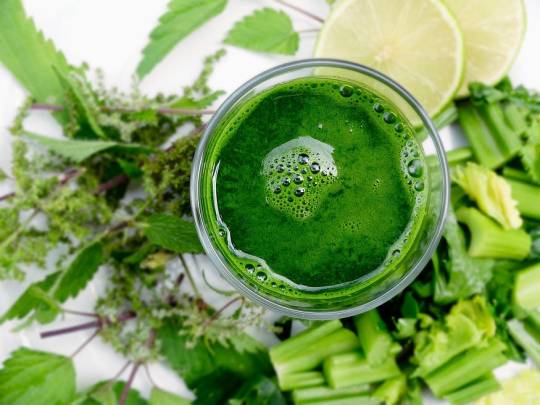
1. Green Smoothie Boost
1 cup spinach
1/2 banana
1/4 avocado
1 tbsp chia seeds
1 scoop protein powder (vanilla)
1 cup almond milk
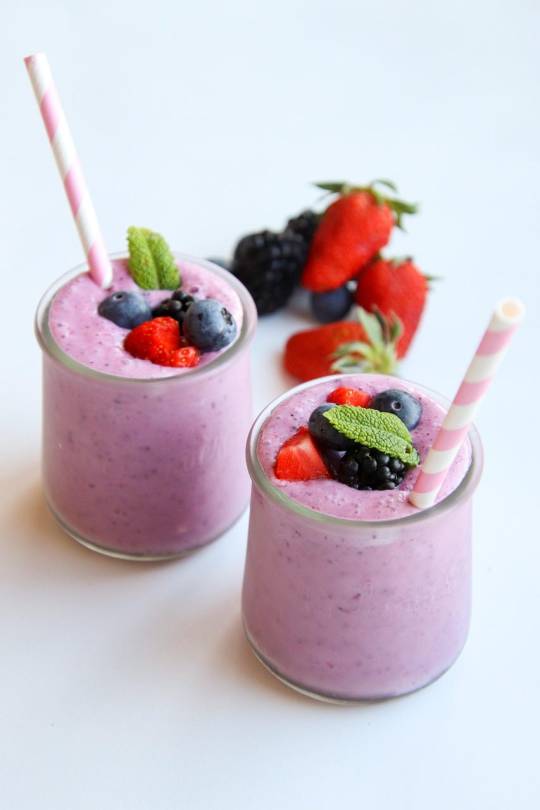
2. Berry Protein Shake
1 cup mixed berries (strawberries, blueberries, raspberries)
1/2 banana
1 scoop protein powder (whey or plant-based)
1 tbsp flaxseeds
1 cup unsweetened almond milk

3. Tropical Smoothie for Digestion
1/2 cup pineapple
1/2 cup mango
1 cup coconut water
1/2 scoop plant-based protein powder
1 tbsp chia seeds
Instructions: Blend all ingredients until smooth. The tropical flavors are refreshing and hydrating, while the pineapple supports digestion.
How to Integrate Smoothies into Your Daily Routine
As Breakfast: Starting your day with a smoothie is a great way to fuel your body with essential nutrients and kickstart your metabolism. Try incorporating greens and protein to help keep you full until lunchtime.
Meal Replacement: You can replace lunch or dinner with a nutrient-packed smoothie. Be sure to include protein and healthy fats to ensure you’re getting enough sustenance for a balanced meal.
Snack Option: Instead of reaching for processed snacks, a smoothie can be a great way to curb your hunger and satisfy your cravings while staying healthy.
Pre/Post-Workout Fuel: Smoothies are an excellent way to nourish your body before or after a workout. The right combination of protein and carbs can aid in recovery and help fuel your exercise routine.
Tips for Success on a Smoothie Diet
Control Your Portions: While smoothies can be healthy, they can also be calorie-dense if you add too many high-calorie ingredients. Keep portion sizes reasonable to stay within your calorie goals.
Stay Hydrated: Drinking plenty of water throughout the day is essential for maintaining proper hydration, which is key to weight loss.
Balance Your Diet: A smoothie diet is most effective when combined with a balanced approach to nutrition. Incorporate whole foods such as lean proteins, vegetables, and whole grains for sustainable weight loss.
Exercise Consistently: Smoothies work best when paired with regular physical activity. Incorporate exercise into your routine for faster results and to help tone your body.
Final Thoughts
Smoothie dieting offers a simple and enjoyable way to lose weight for women, especially when paired with a healthy lifestyle. By choosing whole, nutrient-dense ingredients, you can create satisfying smoothies that help you reach your weight loss goals while supporting overall health. Focus on balance, stay consistent with your habits, and enjoy the process as you work toward a healthier, leaner you.
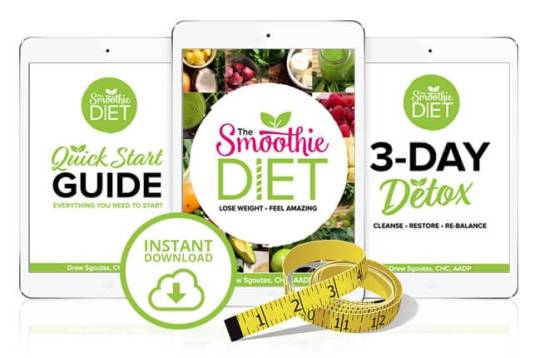
#smoothie#weight loss diet#diet pills#organic#natural body#lose weight fast#lose weight tips#lose weight without exercise#weight loss#diet#diet plan#weight loss journey#lose weight motivation#lose weight at home#smoothies#gluten free#chia seeds#recipe#dairy free#coconut#green smoothie#fruit#melon
0 notes